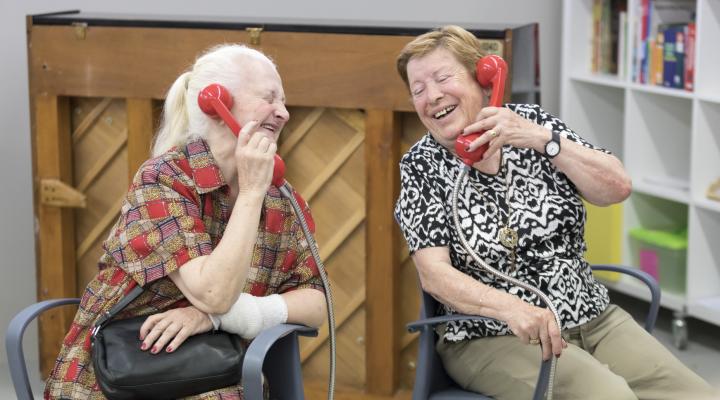
What does the REMS Programme do?
The programme’s interdisciplinary team designs meaningful activities based on life experience and preferences.
Elderly people
Chosen by the participants themselves and designed based on their interests and life stories, these activities help maintain memory and related functions. This helps maintain their cognitive abilities for as long as possible, delaying deterioration and encouraging independence. This activity is mostly carried out in groups.
It aims to improve general motor skills, prevent disorientation, maintain an optimum degree of mobility and autonomy, body schema, coordination and self-confidence. This activity helps conserve physical health and, at the same time, encourages relationships with others and teamwork, while promoting an active lifestyle for as long as possible.
This social activity has three specific goals: to foster interpersonal relationships by avoiding isolation, improving the mood and self-esteem of participants, and encouraging autonomy. The activities are designed and chosen based on the preferences of participants.
Psychologists and neuropsychologist are professionals who support participants during the process of cognitive impairment. These experts ask about participants preferences and life history, to reach an agreement on an activities schedule. This support gives them the opportunity to stay active while developing strategies to adapt to their situation.
Aimed at participants and family members, we offer a support service to help adapt to the diagnosis of the disease, work on strategies to adapt to the situation and manage emotions, among other things.
Meeting space open to the community and family members where REMS Programme participants are the focus for a relaxed conversation.
Aimed at participants and family members, the activity complements the group physical activity, when the situation requires.
Informative activities like workshops, debates and talks on topics related to food, adapting the home, technical improvements and legal aspects, among other things.
Activities with children taking part in the Educational Mentoring Programme (PAE) in the social space, or with schools in the local area.
Family members
Support throughout the REMS Programme on the evolution of the disease and how to deal with it, and activities for further information, including workshops, conferences and debates on food issues, adapting the home, technical improvements and legal aspects, among other things.
Emotional support groups aimed at caring for the participants on the REMS Programme. Innovative dynamics that contribute to understanding the illness, managing emotions positively and improving communication between those people.
Meeting space open to the community and family members where REMS Programme participants are the focus for a relaxed conversation.
Aimed at participants and family members, the activity complements the group physical activity, when the situation requires.